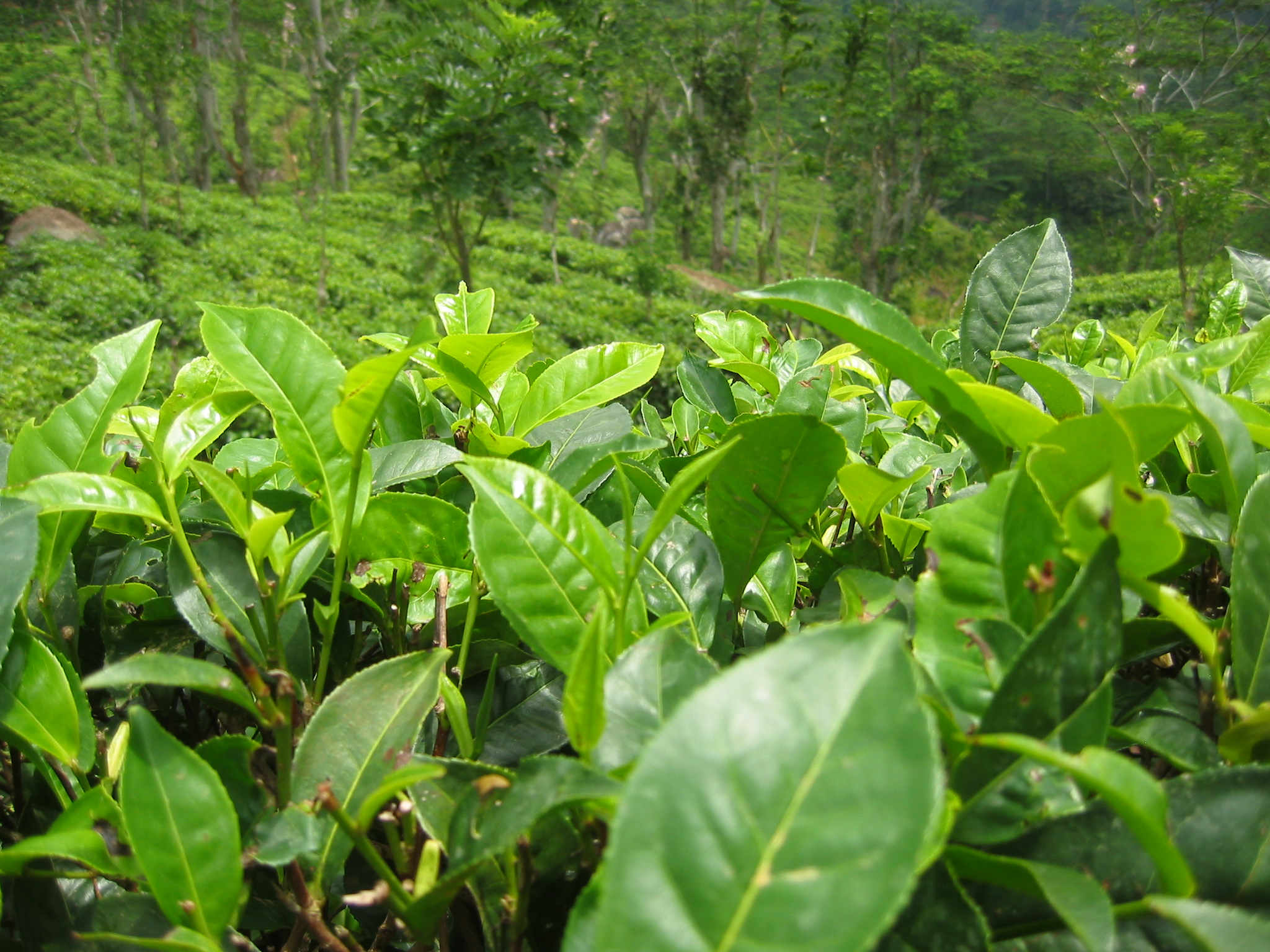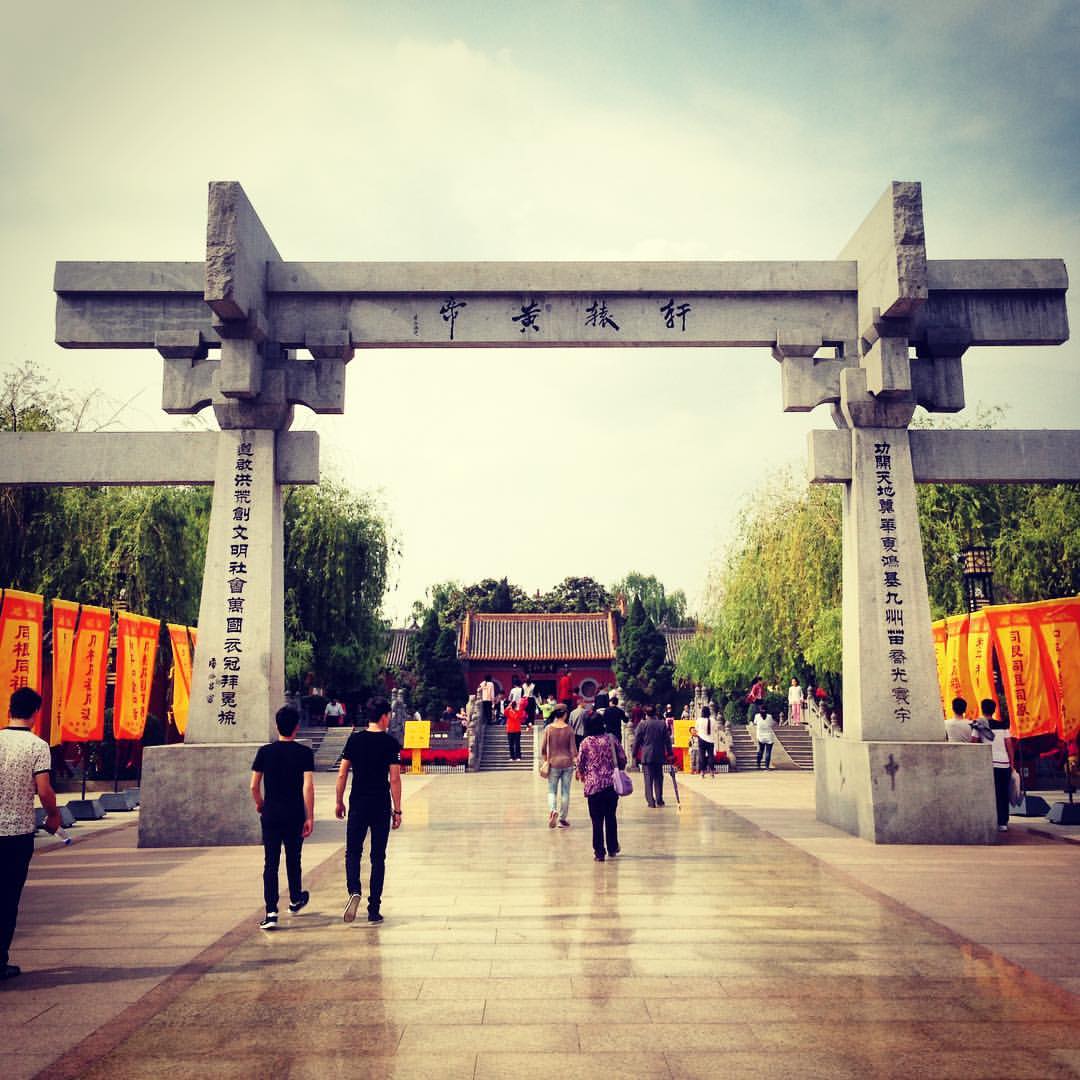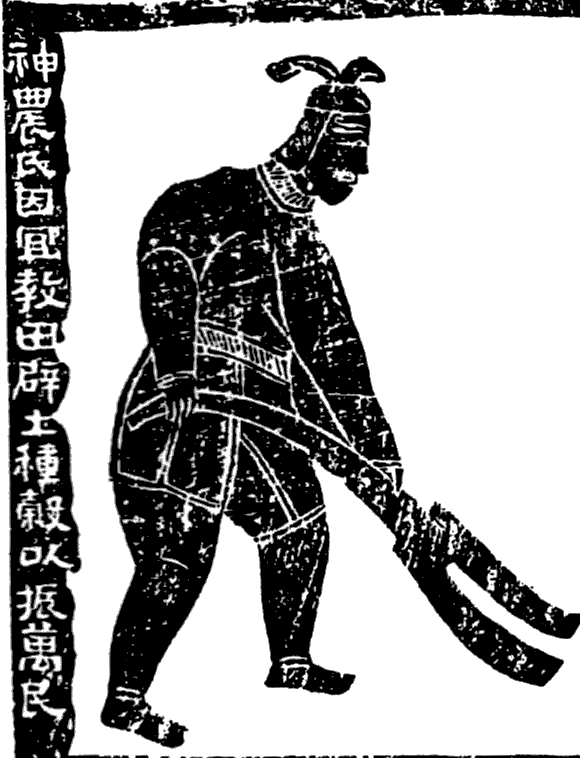|
Mount Lao
Mount Lao, or Laoshan (), is a mountain located near the East China Sea on the southeastern coastline of the Shandong Peninsula in China. The mountain is culturally significant due to its long affiliation with Taoism and is often regarded as one of the "cradles of Taoism". It is the highest coastal mountain in China and the second highest mountain in Shandong, with the highest peak (Jufeng) reaching . The mountain lies about to the northeast of the downtown area of the City of Qingdao and is protected by the Qingdao Laoshan National Park that covers an area of 446 square kilometers. Geology Mount Lao consists of granite. The mountain's landforms were formed due to the action of glaciers during the Quaternary and erosion by meltwater released from the icecap that covered a large portion of Shandong during the late Pleistocene. History Laoshan is known as one of the birthplaces of Taoism. It is the place where the Complete Perfection School of Taoism () developed. In 412 CE ... [...More Info...] [...Related Items...] OR: [Wikipedia] [Google] [Baidu] |
Qingdao
Qingdao (, also spelled Tsingtao; , Mandarin: ) is a major city in eastern Shandong Province. The city's name in Chinese characters literally means "azure island". Located on China's Yellow Sea coast, it is a major nodal city of the One Belt, One Road (OBOR) Initiative that connects Asia with Europe. It has the highest GDP of any city in the province. Administered at the sub-provincial level, Qingdao has jurisdiction over seven districts and three county-level cities (Jiaozhou, Pingdu, Laixi). As of the 2020 census, Qingdao built-up (or metro) area made of the 7 urban Districts (Shinan, Shibei, Huangdao, Laoshan, Licang, Chengyang and Jimo) was home to 7,172,451 inhabitants. Lying across the Shandong Peninsula and looking out to the Yellow Sea, it borders the prefecture-level cities of Yantai to the northeast, Weifang to the west and Rizhao to the southwest. Qingdao is a major seaport and naval base, as well as a commercial and financial center. It is home to electro ... [...More Info...] [...Related Items...] OR: [Wikipedia] [Google] [Baidu] |
Wanli Emperor
The Wanli Emperor (; 4 September 1563 – 18 August 1620), personal name Zhu Yijun (), was the 14th Emperor of the Ming dynasty, reigned from 1572 to 1620. " Wanli", the era name of his reign, literally means "ten thousand calendars". He was the third son of the Longqing Emperor. His reign of 48 years (1572–1620) was the longest among all the Ming dynasty emperors and it witnessed several successes in his early and middle reign, followed by the decline of the dynasty as the emperor withdrew from his active role in government around 1600. Early reign (1572–1582) Zhu Yijun ascended the throne at the age of eight and adopted the regnal name "Wanli", thus he is historically known as the Wanli Emperor. For the first ten years of his reign, he was aided by a notable statesman, Zhang Juzheng, who governed the country as Wanli's regent. During this period, the Wanli Emperor deeply respected Zhang as a mentor and a valued minister. Archery competitions, equestrianism and calligra ... [...More Info...] [...Related Items...] OR: [Wikipedia] [Google] [Baidu] |
Camellia
''Camellia'' (pronounced or ) is a genus of flowering plants in the family Theaceae. They are found in eastern and southern Asia, from the Himalayas east to Japan and Indonesia. There are more than 220 described species, with some controversy over the exact number, and also around 3,000 hybrids. The genus was named by Linnaeus after the Jesuit botanist Georg Joseph Kamel, who worked in the Philippines and described a species of camellia (although Linnaeus did not refer to Kamel's account when discussing the genus). Of economic importance in East Asia, Southeast Asia, and the Indian subcontinent, leaves of '' C. sinensis'' are processed to create the popular beverage tea. The ornamental '' C. japonica'', '' C. sasanqua'' and their hybrids are the source of hundreds of garden cultivars. '' C. oleifera'' produces tea seed oil, used in cooking and cosmetics. Descriptions Camellias are evergreen shrubs or small trees up to tall. Their leaves are alternately arranged, ... [...More Info...] [...Related Items...] OR: [Wikipedia] [Google] [Baidu] |
Han Dynasty
The Han dynasty (, ; ) was an Dynasties in Chinese history, imperial dynasty of China (202 BC – 9 AD, 25–220 AD), established by Emperor Gaozu of Han, Liu Bang (Emperor Gao) and ruled by the House of Liu. The dynasty was preceded by the short-lived Qin dynasty (221–207 BC) and a warring interregnum known as the ChuHan contention (206–202 BC), and it was succeeded by the Three Kingdoms period (220–280 AD). The dynasty was briefly interrupted by the Xin dynasty (9–23 AD) established by usurping regent Wang Mang, and is thus separated into two periods—the #Western Han, Western Han (202 BC – 9 AD) and the #Eastern Han, Eastern Han (25–220 AD). Spanning over four centuries, the Han dynasty is considered a golden age (metaphor), golden age in Chinese history, and it has influenced the identity of the History of China, Chinese civilization ever since. Modern China's majority ethnic group refers to themselves as the "Han Chinese, Han people", the Sinitic langu ... [...More Info...] [...Related Items...] OR: [Wikipedia] [Google] [Baidu] |
Cypress
Cypress is a common name for various coniferous trees or shrubs of northern temperate regions that belong to the family Cupressaceae. The word ''cypress'' is derived from Old French ''cipres'', which was imported from Latin ''cypressus'', the latinisation of the Greek κυπάρισσος ('' kyparissos''). Cypress trees are a large classification of conifers, encompassing the trees and shrubs from the cypress family (Cupressaceae) and many others with the word “cypress” in their common name. Many cypress trees have needle-like, evergreen foliage and acorn-like seed cones. Species Species that are commonly known as cypresses include: Most prominently: *Cypress (multiple species within the genus '' Cupressus'') Otherwise: *African cypress ('' Widdringtonia'' species), native to Southern Africa *Bald, Pond, and Montezuma cypresses ('' Taxodium'' species), native to North America *Chinese swamp cypress ('' Glyptostrobus pensilis''), Vietnam, critically endangered *Cordillera ... [...More Info...] [...Related Items...] OR: [Wikipedia] [Google] [Baidu] |
Lei Gong
Leigong () or Leishen (), is the god of thunder in Chinese folk religion, Chinese mythology and Taoism. In Taoism, when so ordered by heaven, Leigong punishes both earthly mortals guilty of secret crimes and evil spirits who have used their knowledge of Taoism to harm human beings. He carries a drum and mallet to produce thunder, and a chisel to punish evildoers. Leigong rides a chariot driven by a young boy named A Xiang. Since Leigong's power is thunder, he has assistants capable of producing other types of heavenly phenomena. Leigong's wife Dianmu is the goddess of lightning, who is said to have used flashing mirrors to send bolts of lightning across the sky. Other companions are Yun Tong ("Cloud Youth"), who whips up clouds, and Yu Shi ("Rain Master") who causes downpours by dipping his sword into a pot. Roaring winds rush forth from a type of goatskin bag manipulated by Fengbo ("Earl of Wind"), who was later transformed into Feng Po Po ("Lady Wind"). Iconography Leigong ... [...More Info...] [...Related Items...] OR: [Wikipedia] [Google] [Baidu] |
Xuan Wu (god)
Xuanwu () or Xuandi (), also known as Zhenwu (, ) or Zhenwudadi (, ), is a powerful deity in Chinese religion, one of the higher-ranking deities in Taoism. He is revered as a powerful god, able to control the elements and capable of great magic. He is identified as the god of the north ''Heidi'' ( , and is particularly revered by martial artists. He is the patron god of Hebei, Henan, Manchuria and Mongolia. As some Han Chinese (now the modern-day Cantonese and Fujianese peoples) migrated into the south from Hebei and Henan during the Tang-Song era, Xuanwu is also widely revered in the Guangdong, Guangxi and Fujian provinces, as well as among the overseas diaspora. Since the usurping Yongle Emperor of the Ming dynasty claimed to receive the divine assistance of Xuanwu during his successful Jingnan Campaign against his nephew, he had a number of Taoist monasteries constructed in the Wudang Mountains of Hubei, where Xuanwu allegedly attained immortality. Black Tortoise X ... [...More Info...] [...Related Items...] OR: [Wikipedia] [Google] [Baidu] |
Yellow Emperor
The Yellow Emperor, also known as the Yellow Thearch or by his Chinese name Huangdi (), is a deity ('' shen'') in Chinese religion, one of the legendary Chinese sovereigns and culture heroes included among the mytho-historical Three Sovereigns and Five Emperors and cosmological Five Regions' Highest Deities (). Calculated by Jesuit missionaries on the basis of Chinese chronicles and later accepted by the twentieth-century promoters of a universal calendar starting with the Yellow Emperor, Huangdi's traditional reign dates are 2697–2597 or 2698–2598 BC. Huangdi's cult became prominent in the late Warring States and early Han dynasty, when he was portrayed as the originator of the centralized state, as a cosmic ruler, and as a patron of esoteric arts. A large number of texts – such as the '' Huangdi Neijing'', a medical classic, and the '' Huangdi Sijing'', a group of political treatises – were thus attributed to him. Having waned in influence during most of the ... [...More Info...] [...Related Items...] OR: [Wikipedia] [Google] [Baidu] |
Shennong
Shennong (), variously translated as "Divine Farmer" or "Divine Husbandman", born Jiang Shinian (), was a mythological Chinese ruler known as the first Yan Emperor who has become a deity in Chinese and Vietnamese folk religion. He is venerated as a culture hero in China and Vietnam. In Vietnamese he is referred to as Thần Nông. Shennong has at times been counted amongst the Three Sovereigns (also known as "Three Kings" or "Three Patrons"), a group of ancient deities or deified kings of prehistoric China. Shennong has been thought to have taught the ancient Chinese not only their practices of agriculture, but also the use of herbal drugs. Shennong was credited with various inventions: these include the hoe, plow (both ''leisi'' () style and the plowshare), axe, digging wells, agricultural irrigation, preserving stored seeds by using boiled horse urine, the weekly farmers market, the Chinese calendar (especially the division into the 24 ''jieqi'' or solar terms), a ... [...More Info...] [...Related Items...] OR: [Wikipedia] [Google] [Baidu] |
Fuxi
Fuxi or Fu Hsi (伏羲 ~ 伏犧 ~ 伏戲) is a culture hero in Chinese legend and mythology, credited along with his sister and wife Nüwa with creating humanity and the invention of music, hunting, fishing, domestication, and cooking as well as the Cangjie system of writing Chinese characters around 2,000BC. Fuxi was counted as the first of the Three Sovereigns at the beginning of the Chinese dynastic period. Origin Pangu was said to be the creation god in Chinese mythology. He was a giant sleeping within an egg of chaos. As he awoke, he stood up and divided the sky and the earth. Pangu then died after standing up, and his body turned into rivers, mountains, plants, animals, and everything else in the world, among which is a powerful being known as Huaxu (華胥). Huaxu gave birth to a twin brother and sister, Fuxi and Nüwa. Fuxi and Nüwa are said to be creatures that have faces of human and bodies of snakes. Fuxi was known as the "original god", and he was said to ha ... [...More Info...] [...Related Items...] OR: [Wikipedia] [Google] [Baidu] |
Yuanshi Tianzun
Yuanshi Tianzun (), the ''Celestial Venerable of the Primordial Beginning'' or the ''Primeval Lord of Heaven'', is one of the highest deities of Taoism. He is one of the Three Pure Ones () and is also known as the ''Jade Pure One'' (). He resides in the Heaven of Jade Purity. It is believed that he came into being at the beginning of the universe as a result of the merging of pure breaths. He then created Heaven and Earth. In Taoist mythology He once was the supreme administrator of Heaven, but later entrusted that task to his assistant ''Yuhuang'', the Jade Emperor. Yuhuang took over the administrative duties of Yuanshi Tianzun and became the overseer of both Heaven and Earth. At the beginning of each age, Yuanshi Tianzun transports the ''Lingpao ching'' (or "Yuanshi Ching"), the Scriptures of the Magic Jewel, to his students (who are lesser deities), who in turn instruct mankind in the teachings of the Tao. Yuanshi Tianzun is said to be without beginning and the most suprem ... [...More Info...] [...Related Items...] OR: [Wikipedia] [Google] [Baidu] |
Lingbao Tianzun
Lingbao Tianzun, also known in English as the Heavenly Lord of Spiritual Treasures, is a Taoist god. Also known as Shangqing, he is numbered among the Three Pure Ones who head some forms of the Taoist pantheon. Temples The Dongxuan Palace in the Zhujia'ao Valley beside in Shanxi Shanxi (; ; formerly romanised as Shansi) is a landlocked province of the People's Republic of China and is part of the North China region. The capital and largest city of the province is Taiyuan, while its next most populated prefecture-lev ... is dedicated to the Lord of Lingbao. His statue in its main hall is covered by a ring of light; his eyes are thought to "contain the mysteries of the universe".. References Bibliography * . Chinese gods Deities in Taoism {{Deity-stub ... [...More Info...] [...Related Items...] OR: [Wikipedia] [Google] [Baidu] |





%2C_dated_1542.jpg)
%2C_god_of_the_North.jpg)


